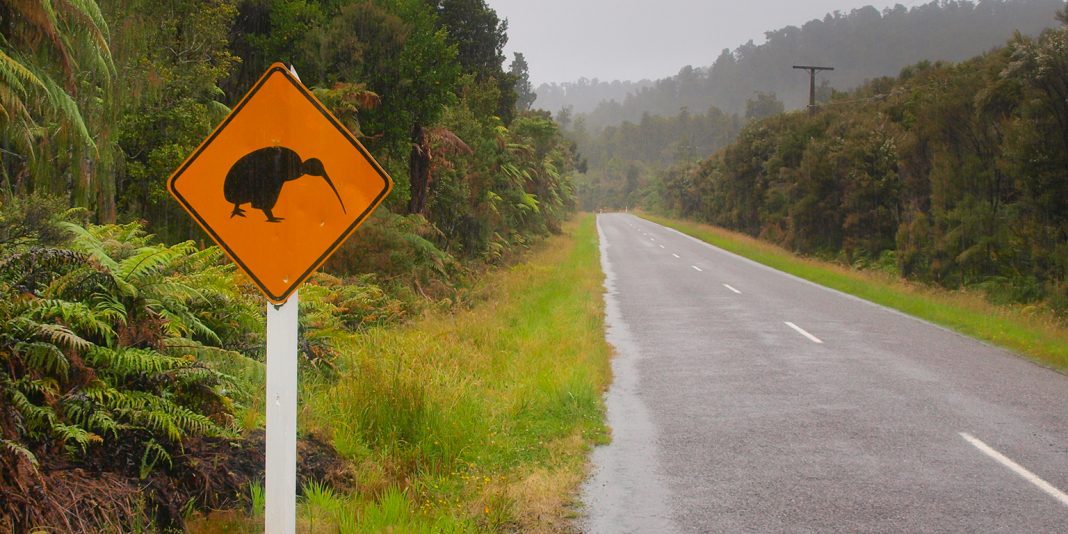Although, there is much scope for nurse practitioners in New Zealand, I would very much doubt if they provide even one twentieth the scope or function of any GP that I have met.
In addition, what makes you think NPs are any more likely to live in rural areas than GPs? (Read Carryer opinion piece “Train more NPs not GPs” here)
In reality, they are more likely to have restrictions caused by their family role, their children’s schooling and social life and, dare I say it, their spouse’s occupation. These are the same for all individuals and not really discipline-related but may more affect women than men (rightly or wrongly).
Individuals must also address the limited social life, social isolation, educational opportunities for children and access to a range of consumables that many such urban individuals take for granted. This is inevitably more problematic for all who train in the city and who may have come from urban environments (the majority).
Rural medicine is indeed very rewarding but a challenging primary care environment with greater demands that even urban GPs need to adapt to. The scope of rural medicine is definitely wider, has more limited primary and secondary support and the ‘on call’ far more daunting. One cannot cherry-pick.
Being a 9–5 NP in COPD, diabetes, elderly Care – those NPs one mostly have contact with – certainly don’t have a scope remotely comparable to a GP. As for NPs whose scope is primary care, these are still extremely rare and in my experience could never work in isolation – at least for many years – in the post. One day this may change but at present this is a reality.
If NPs are so motivated to work in primary care, why are they not more present in AFTER HOURS? It is here that there is a really great need for NPs dealing with the worried well and minor illnesses. This is not a denegration of their training as it is here where the (quite uncommon) risks occur. Knowing when things are not quite right requires real experience when much of the time very limited skills are needed and the risks of getting things wrong are minimal.
The waste of medical expertise here in a world of diminishing ageing doctors in New Zealand is a travesty. If NPs could show that they could tackle such a workload (15 minutes a patient) I might be impressed.
Despite these negatives, I do sincerely support the evolution of nurses to NPs by broadening their scope but cherry-picking narrow spectrum specialities cannot really be seen as being a GP.





















HI Phillip
Your support and interest in NPs is valued but some of your knowledge about NPs in NZ is a little out of date. It is true that early NPs in NZ were authorised in more defined specialist areas but of the nearly 300 NPs in NZ now, and at last count, approximately half have primary health care as their scope of practice. It is the area of most rapid growth and has been for a while. They are working well in general practice settings functioning independently to the extent of owning their own business or working as partners and sometimes as locums or practice employees. No-one should work in isolation and collaboration is essential for all clinicians but they are demonstrating that they are able to deal appropriately with patients in that setting without supervision and handling the same case load on the same basis. We know that nurses are in every community in NZ, already resident and the limited evidence available shows as you suggest that they stay put because of commitments to partners and children (indeed rightly or wrongly!!). This makes them a vital resource to educate to NP level as they remain in their own community but can provide a much needed level of service. There are many rural areas where RNs with PRIME training and using standing orders are doing 24/7 call and are the backbone of that service. Becoming NPs means they will be able to prescribe independently, have an even greater level of knowledge and be a little more appropriately remunerated for what they do. And a final point. NPs are not too expensive to employ. They are able to enrol patients, claim capitation, GMS and use the flexible funding pool and fee for service as do GPs. They are therefore income generating.
This is a vital dialogue as we look to resolve the issue of service sustainability into the future.
Thanx. A spirited reply but do I not accept the scope of a rural NP and GP are remotely similar; or that the hours of NP would reflect that of their GP equivalents. How many of these work 60 or even 40 plus hours each week I wonder and for how many years in one community (although this may be a thing in the past for new GPs). So I look forward to seeing this revolution, its consequences and its cost-effectiveness. So why is the world so short of GPs do you think if this is deemed a potential solution? Out of date I may seem to you, but your discipline still has to gain far greater presence and acceptability within the primary care sector and the community. It is not a done deal, it needs context and, of course, as you say, teamwork, mutual understanding and respect.
I’ll repeat my suggestion. If NPs are equivalent in scope to GPs, why not sit the GPEP clinical and written exam to prove it?
Or the equivalent fellowship exams in other specialities?
I respect your knowledge and support of NPs Jenny, you have a far better understanding of the issues than the author of the article and Zoo
A request to demonstrate competency equates to lack of understanding?
If NPs and GPs are of ‘similar scope’, then the minimum requirement is to pass the GPEP exam.
It would be equivalent to nurse practitioners claiming the ‘same scope of practice’ as an orthopaedic surgeon without fulfilling their fellowship requirements.
The lack of understanding is in what general practitioners do.
I think Phillip is way off base reflecting an outdated view of NPs as well as GPs. Phillip’s comments about women and our challenges with family and spouses’ careers….. hmmmm. How old are you anyway?! The majority of GPs under age 45 are female. I’m assuming you must be older than that and maybe don’t have very many female colleagues that you know well or have as friends?
I have 25 years experience working with NPs, PAs and family medicine physicians, 10 years experience working with GPs. Maybe you know something I don’t know? Doubt it.
Unless you are a GP, it is a case of not knowing what you don’t know.
Working with an orthopaedic surgeon doesn’t mean you know what it’s like to be one. Nor does having a nurse practitioner qualification equate to the ‘same scope of practice’ as a general surgeon. Why claim the same ‘scope of practice’ as GPs in primary care; and not orthopaedics, paediatrics, general surgery, or any other clinical speciality?
With regard to challenges of family- it is difficult to staff rural areas with GPs for those reasons, which is Phillips argument. You agree in principle.
Both Philip and Zoo have suggested that NPs are not a solution because they would be just as hard to entice to rural areas as GPs. Even supposing that is true (though Prof Carryer has above provided reasons why it may not be), I think it misses the much larger issue – that NZ medical graduates have not been choosing general practice for many years. Something like 50% of all GPs are aged over 50, there is a huge gap, it’s a ticking time bomb when all those GPs retire in the next 10-15 years. The point is that NPs *are* happy to work in primary care. They offer a solution to to this much bigger and more fundamental problem. Concerning ourselves over distribution of current GPs to rural areas does not address it. Either that or figure out a way to convince medical grads to fall back in love with GP…
They *have* fallen back in love with GP. The problem is not that there aren’t enough people wanting to train as GPs, it is simply that there are not enough training positions.
There are specific areas where NPs can fill a gap, but they are not doing the same job. eg Nurse endoscopist do colonoscopies, but they are not gastroenterologists, or trained as such.
No one has addressed any of the points I made.
Zoo, I think you underestimate the NP training pathway. All NZ NPs have a Masters Degree (Health or Nursing). It’s a clinically focused degree with papers in Pathophysiology, Pharmacology, Advanced Assessment and Clinical Decision Making, a Health Research Paper and a few other papers, finishing with a Practicum in Prescribing Practice where they work alongside a Mentor. Having passed this, they then apply to Nursing Council where they are interviewed. We have multiple NPs working in my DHB, both in Primary Health and in the DHB. They are all highly skilled and knowledgeable, and they are exceptional to work with. They are senior nurses with expertise in their chosen area of practice. They do not need to sit medical board exams as they have sat similar for Nursing Council approval for NP status.
I didn’t say they aren’t. I said that the claim that NPs have the ‘same scope of practice’ as as GP is incorrect.
If a Masters in Nursing is equivalent to a vocational specialist registration, they should be able to meet the same requirements. Otherwise, it is false to claim that it provides the same skills and knowledge to practice as a neurosurgeon, GP, gastroenterologist, etc